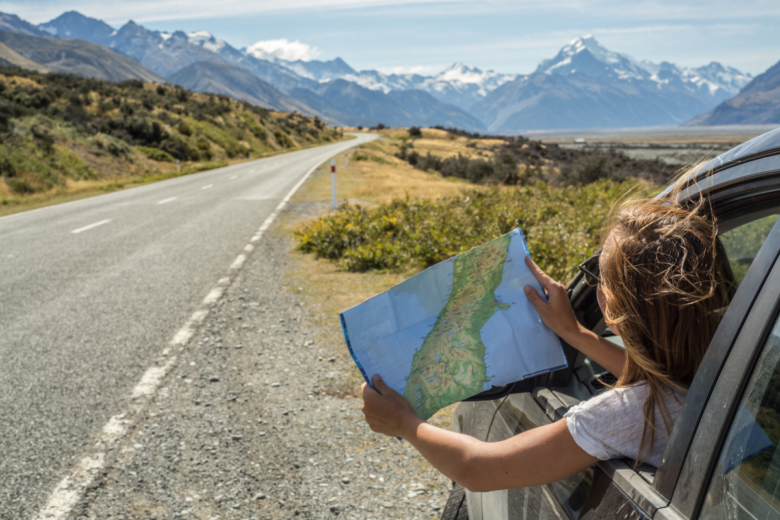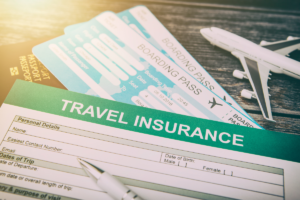Road trips are a beloved tradition for many travelers, offering the freedom to explore new places at your own pace. Whether you’re embarking on a cross-country adventure or simply taking a weekend getaway, road trips can be a fantastic way to create lasting memories. However, safety should always be a top priority when hitting the open road. In this article, we will explore essential tips and guidelines to ensure your road trips are not only fun but also safe.
Prepare Your Vehicle
Before embarking on your road trip, it’s crucial to ensure your vehicle is in tip-top shape. Regular maintenance checks can help prevent breakdowns and accidents. Here’s what you should do:
a. Check the tires: Ensure your tires are properly inflated and have sufficient tread. Bald tires can lead to reduced traction and an increased risk of accidents, especially in adverse weather conditions.
b. Brake check: Have your brakes inspected to ensure they are working correctly. Brakes are a vital component of vehicle safety.
c. Fluid levels: Check your vehicle’s oil, coolant, brake fluid, and windshield washer fluid levels. Top them up as needed.
d. Lights and signals: Test all lights and signals, including headlights, taillights, turn signals, and brake lights. Replace any burnt-out bulbs.
e. Emergency kit: Prepare an emergency kit with essentials like a flashlight, first-aid supplies, jumper cables, and basic tools.
Plan Your Route
Planning your route is an essential step in ensuring a safe and enjoyable road trip. Here’s how you can do it:
a. Map it out: Use navigation apps or GPS devices to plan your route in advance. Be sure to check for traffic updates and road closures along the way.
b. Rest stops: Identify rest areas, gas stations, and food stops along your route. Frequent breaks are essential for driver alertness and reducing fatigue.
c. Share your itinerary: Share your travel plans with a friend or family member so that someone knows your whereabouts and can check in on you during your journey.
d. Weather forecast: Check the weather forecast for your route and destination. Be prepared for any adverse weather conditions and adjust your plans if necessary.
Drive Safely
Safe driving practices are paramount to road trip safety. Keep the following tips in mind while driving:
a. Observe speed limits: Always obey posted speed limits and adjust your speed for road and weather conditions.
b. Avoid distractions: Stay focused on the road by avoiding distractions like texting, making phone calls, or adjusting the radio while driving.
c. Buckle up: Ensure that all passengers in your vehicle are wearing their seatbelts at all times.
d. Maintain a safe following distance: Keep a safe distance from the vehicle in front of you, allowing ample time to react to sudden stops or changes in traffic.
e. Stay rested: Avoid driving when you are tired or drowsy. Fatigue impairs your reaction time and decision-making abilities.
f. Don’t drive under the influence: Never drive under the influence of alcohol or drugs. Designate a sober driver if necessary.
Be Prepared for Emergencies
Even with careful planning, unexpected situations can arise on the road. Being prepared for emergencies can make a significant difference. Here’s what you should do:
a. Carry essential documents: Ensure you have your driver’s license, vehicle registration, and proof of insurance readily available.
b. Have roadside assistance: Consider subscribing to a roadside assistance service that can provide help in case of breakdowns or accidents.
c. Know how to change a tire: Familiarize yourself with the process of changing a flat tire, and ensure you have a spare tire, jack, and lug wrench in your vehicle.
d. Emergency contact information: Carry a list of emergency contacts, including local law enforcement and towing services.
e. Stay connected: Make sure your mobile phone is charged and have a car charger with you.
Secure Your Belongings
Protecting your belongings while on a road trip is essential to ensure a stress-free journey. Follow these tips:
a. Lock your vehicle: Always lock your car when you leave it, even if it’s just for a few minutes.
b. Hide valuables: Keep valuable items out of sight or store them in the trunk to deter potential thieves.
c. Use a car alarm: If your vehicle is equipped with an alarm system, activate it when you leave the car.
Stay Informed
While you’re on the road, it’s essential to stay informed about the current conditions and any unexpected developments. Here are some ways to do so:
a. Check traffic updates: Keep an eye on real-time traffic updates and road conditions using navigation apps or traffic websites. This information can help you avoid congested areas or find alternative routes.
b. Listen to weather reports: Tune in to local radio stations or use weather apps to stay updated on changing weather conditions, especially if you’re traveling through regions with unpredictable weather.
c. Use a CB radio: In remote areas or on long stretches of highway, a Citizen’s Band (CB) radio can be a valuable tool for communication with other drivers and getting information about road conditions or potential hazards.
d. Follow news outlets: Keep an eye on local news outlets or social media for updates on accidents, road closures, or other incidents that may affect your route.
Respect Local Laws and Regulations
Each state or region may have specific laws and regulations that you need to adhere to while on the road. It’s essential to familiarize yourself with these rules to avoid legal issues and ensure your safety. Some common regulations to consider include:
a. Seatbelt laws: Seatbelt requirements may vary from one place to another. Make sure everyone in your vehicle is wearing their seatbelt as required by local laws.
b. Speed limits: Pay attention to posted speed limits, which can change frequently. Speeding tickets not only lead to fines but can also pose safety risks.
c. Cell phone laws: Some areas have strict laws regarding the use of cell phones while driving, including hands-free requirements. Be sure to follow these rules to avoid penalties.
d. Child safety seat regulations: If you’re traveling with children, familiarize yourself with the child safety seat requirements in the regions you’ll be passing through.
Be Mindful of Wildlife
Road trips often take you through natural and rural areas where wildlife can be a hazard, especially during dawn and dusk. To reduce the risk of collisions with animals:
a. Be vigilant: Keep an eye out for wildlife warning signs, and slow down in areas where animals are known to cross the road.
b. Use high beams: If you’re driving in rural or wooded areas at night, use your high beams to increase visibility and spot animals on the road ahead.
c. Avoid sudden movements: If an animal suddenly appears in your path, avoid swerving, as this can lead to loss of control. Brake firmly but steadily and honk your horn to try to scare the animal away.
Stay Hydrated and Take Breaks
Long hours on the road can lead to fatigue, which impairs your reaction time and decision-making abilities. To stay alert and refreshed:
a. Drink water: Dehydration can make you feel tired and sluggish. Keep a water bottle handy and stay hydrated throughout your journey.
b. Take regular breaks: Plan rest stops every couple of hours to stretch your legs, use the restroom, and grab a snack. Short breaks can help combat fatigue.
c. Share the driving: If you have multiple drivers in your group, take turns behind the wheel to avoid driver fatigue. A well-rested driver is a safer driver.
Conclusion
Road trips can be a thrilling and memorable way to explore new places, but they should also be safe adventures. By following these tips for road trip safety, you can minimize risks and enjoy a worry-free journey. Remember that careful preparation, responsible driving, and quick thinking during emergencies are key to a successful and secure road trip. So, pack your bags, hit the road, and make lasting memories while prioritizing safety every step of the way. Safe travels!
A successful road trip is not just about reaching your destination but also about enjoying the journey itself. By prioritizing safety and following these additional tips, you can enhance your road trip experience while reducing risks and ensuring the well-being of everyone on board.
Remember that road safety is a collective responsibility, and by practicing safe driving habits and staying informed, you contribute to making our roads safer for all travelers. So, pack your essentials, hit the road, and embrace the adventure with the knowledge that you’re well-prepared for a secure and enjoyable road trip. Safe travels and happy trails!



